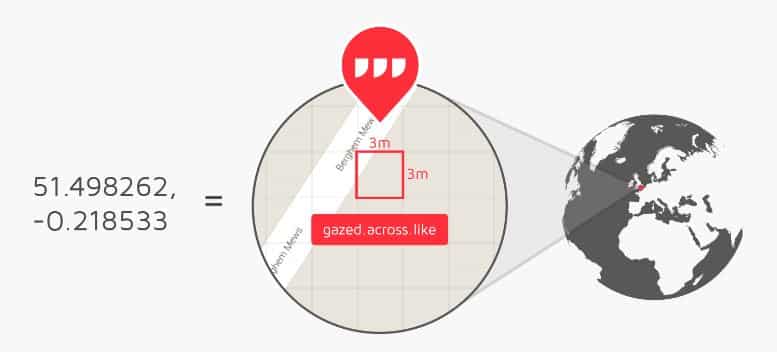What3Words: What Three Words Are You?
Table of contents
Table of contents

We’re always looking for new and exciting disruptive technologies and most of these are very difficult to understand at first look. Concepts like synthetic biology or gene editing are extremely complex, and we look to understand these technologies well enough so that we can identify viable investment opportunities. There are highly educated and highly paid subject matter experts that spend the majority of their waking days evaluating such investment opportunities for sophisticated institutional investors. The problem is that retail investors typically won’t get access to these findings which are often in the form of highly technical reports produced on the topic. It is for this reason that we always get a little bit excited when we come across a business model that’s so simple and elegant that the first thing we ask is, “why didn’t someone else think of that before”? An example of one such company is what3words.
About what3words
Founded in 2013, London-based startup what3words has taken in just $5 million in funding from investors such as Intel Capital and Horizon Ventures, a venture capital firm which represents the interests of the richest man in Asia, Li Ka-shing. So what makes this elegantly simple business model so attractive to high profile investors like this? Let’s take a closer look at their value proposition.
Update 03/25/2021: What3words has raised $16 million to enter new international markets and continue developing partners in the e-commerce and logistics sector. This brings the company’s total funding to $39.7 million to date.
The problem what3words is trying to solve for is that very few locations on our small planet have an assigned address, even largely populated areas. You think that favela on the hills of San Paulo has an address for every single resident? No, they don’t. While we all take for granted the existence of addresses in developed markets, there are many people living in emerging markets that don’t have addresses. In many cases, they don’t even have road names. So how can we solve this problem?
What if we took our entire planet and then diced it up into a grid of 57 trillion small plots of land or water, each with a size of 3 yards by 3 yards (or 3 meters by 3 meters) then associated each square with a sequence of three random words as seen below:
While this seems to make sense, 57 trillion squares is a big number. Would we have enough words to make this work? We can test this by using some “back of the napkin” calculations. The English dictionary currently contains around 171,000 words. If we took just 25 percent of these words and used them in random combinations of 3 words, the number of possible combinations would be more than enough to label every single one of the 57 trillion plots we’ve mapped out. This isn’t even counting usage of plural or tense for commonly used words. Once you’ve randomly assigned 3 words to every single small plot, you would also have to make sure that no two plots near each other had similar names. If my location is labeled with the three words “dust.asks.turn” and the guy up the street is labeled “dusty.asks.turn”, then there could potentially be some confusion. This is why the what3words algorithm makes sure none of the assigned names can possibly cause any confusion by making sure similarly sounding names are separated by a great deal of distance.
So what is this technology good for? Here’s a statement by what3words which helps explains why this technology is being used by over 170 different countries around the world in 9 languages:
Around 75% of the world (135+ countries), suffers from inadequate addressing. 4 billion people are invisible, unable to get deliveries or receive aid, and unable to exercise their rights as citizens
Conclusion
The entire application can be used offline and is only 10 megabytes in size. This is a very powerful value proposition. So how can retail investors invest in this opportunity? Well, they can’t because what3words is privately held. The truth is, this doesn’t seem to be a business model lends itself to some grand liquidity event through which retail investors can participate. While the peak revenues this Company may be able to achieve probably wouldn’t raise any eyebrows, there’s a strategic value to investing in what3words which is obvious to the current backers. Nonetheless, you’ll probably be taking a look right after you read this article to plug in your address to this search engine to find the answer to the question; just what three words are you?
Sign up to our newsletter to get more of our great research delivered straight to your inbox!
Nanalyze Weekly includes useful insights written by our team of underpaid MBAs, research on new disruptive technology stocks flying under the radar, and summaries of our recent research. Always 100% free.
















Definitely want some three words ipo stock 100% it’s revolutionary
What a fascinating concept eh? Is there any possibility that someone else could do this and offer it for free? There are no barriers to entry here, right?
Definitely want some three words ipo stock 100% it’s revolutionary